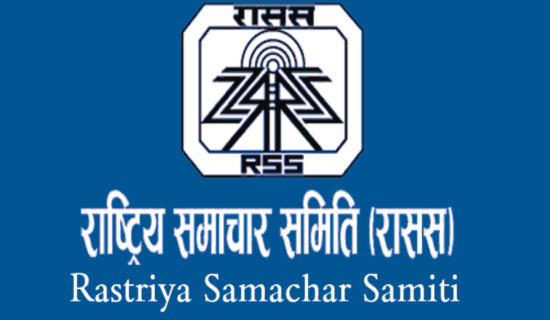- Thursday, 19 February 2026
Key To A Happier Life
Pushpa Priya,
The pursuit of happiness is a never-ending process. For the ages, people have been searching for it. The purpose behind every work is happiness. In order to get happiness, people look and even work hard for success in their respective work. Many of us want to achieve success anyhow. However, an undesired attitude never comes up with a pleasant experience but gives rise to bad feelings among others.
Felicity lies within oneself and it is not confined to any external factors like people, situation and place. To know it, one should have perception and intelligence. Happiness dwells in the self but it is overshadowed by ignorance and illusion.
What are the basic hindrances to achieving happiness? Certainly, a strong sense of justice is one. Judgmental issues are often nothing more than a highly developed sense of ego. For instance, when two or more people become too judgmental about each other, the sender and the receiver both remain affected which results in misunderstanding without understanding the intended message. Similarly, self-critical blocks experiencing happiness. Self-critical means being critical towards self.
In a conversation between A and B both started having enough questions like What B is thinking about me? Am I looking presentable or not? This kind of being self-critical with body consciousness results in low self–esteem in which happiness never lies.
Another hindrance to happiness is an incisive effort in a concerned task. In order to get a successful happy life; effort should be focused, and calibrated with 100%. Labour itself does not guarantee a happy, successful life. There are even many intelligent people who believe luck may bring happiness and success.
They have intelligence but no perception. While making a consistent effort right timing the right kind of action and the right place is important; in this circumstance, only one labour may be paid off resulting happier and more successful life.
Furthermore, the principle of acceptance, adaptability and adjustment should be the motto of life to experience happiness. If you can accept people and the situation as it is, life becomes happy and playful. Again acceptance starts from within; it means to accept yourself first with immense love and you will be able to accept and love others. In this way, one creates a happy world inside and out.
Yet another hindrance to success and happiness is the lack of effective communication skills. It carries a wide range affecting experiencing a happier world. To get your purpose done, effective communication plays a vital role, through knowing the methodology of effective communication skills one may transcend towards success and a happier world.
For effective communication skills, one needs to be considerate(your attitude), compassionate courteous, conciseness and clear.
'Your attitude' is important; it means you should treat others in the way you want to be treated. It also means being considerate that involves an empathetic attitude and understanding of human nature. Try to put yourself in the receivers' place, then communicate and while communicating focus on the 'you attitude' rather than the 'I' attitude.
Another component of effective communication is compassionate courtesy and treating all people alike regardless of caste, culture, tradition, profession, and status. The world becomes a single family if we practice courtesy by respecting the feelings of others and it arises from a sincere attitude. For attaining courtesy in communication messages, one should be tactful, thoughtful and appreciative.
All skills require constant repetition to become second nature; politeness in any action is no exception. If you train yourself to be considerate of others; if you can acquire the habit of identifying with their problems, hopes and fears, good manners will follow automatically. Courtesy involves using expressions that show respect and love to others.
One should select non-discriminatory expressions to help to build goodwill. Irritating expressions must be avoided like: I do not agree with you. Furthermore, when using names, treat each gender with respect. Try to make yourself aware of gender, race, age, colour, creed, sexual preferences or ethnic origins to enhance successful happier life.
One simple way to notice a change within and experience blissful life is to concentrate on your performance in a specific area for about a month. Responding to others, for example; how you respond to anyone on the telephone, how you respond to your guests or relatives, family and most importantly yourself.
One difficult but essential thing to remember is to refuse to let other people's bad manners cause you to do the same harm in return though one behaves to you in a discourteous way, you just focus on being compassionate courteous. If you do so, you will bring peace and happiness to any dark situation, the worst of the storm would blow over.
Yet another component of effective communication is the use of conciseness. Conciseness is very important for effective messages. It means using the fewest possible words without sacrificing other principles of communication. The concise message is complete. It brings emphasis by eliminating unnecessary words.
It saves time and cost for the sender as well as for the receiver. To achieve conciseness, try to eliminate wordy expressions. For example: 1) Do not say: in due course, Say: soon, 2) Do not say: let me say how helpful your response was, Say: Your last response was helpful etc. while achieving conciseness, irrelevant statements should be avoided. For this reason, confined to the purpose of the message. Also, delete irrelevant words. Avoid lengthening the introduction. Do not repeat information known to the recipient. Moreover, another component of effective communication is clarity. It creates understanding. To achieve clarity one should use precise and familiar words, avoiding the use of technical terms, while communicating with a person who is unaware of the terminology.
Similarly, concreteness should be one of the means of communication. It means communication should be objective, clear, specific and vivid. To achieve concreteness one should use specific facts and figures in place of general words preferring the use of an active voice. For instance,1) Say: The team decided; Do not say: A decision has been made. 2) Do not say: Captain will give consideration to the matter; Say: Captain will consider the matter.
Most importantly, practising to develop a sense of humour is the ultimate source of success and happiness. A sense of humour makes a person likeable and attractive. Learning to laugh at oneself is the safest humour. Laughing at yourself gives you the energy to bounce back. Positive emotions, like happiness and laughter, would bring positive chemicals into our system. Dr . Norman Cousins, author of Anatomy of an Illness, proves a great healing power of humour. Humour makes life's adversities easier to handle.
In the end, it all comes down to you; how effective your communication skills are and your sense of humour to enhance your success and a happier world. Life is a complex phenomenon and the most sophisticated thing on this planet is the human mechanism. It is full of trials and injustices. An effective solution is a sense of humour and effective communication skills like compassionate courtesy, concreteness and consideration. I think practising these skills helps humanity to experience a successful and blissful life.
(The writer teaches English at Kathmandu based colleges)

















